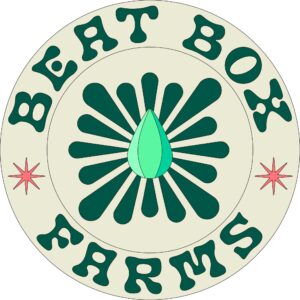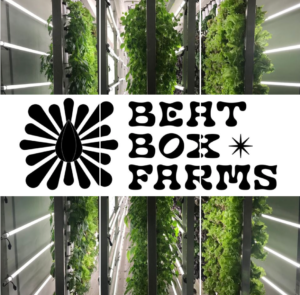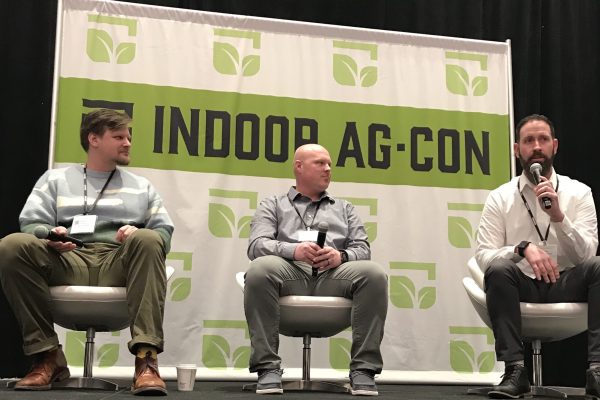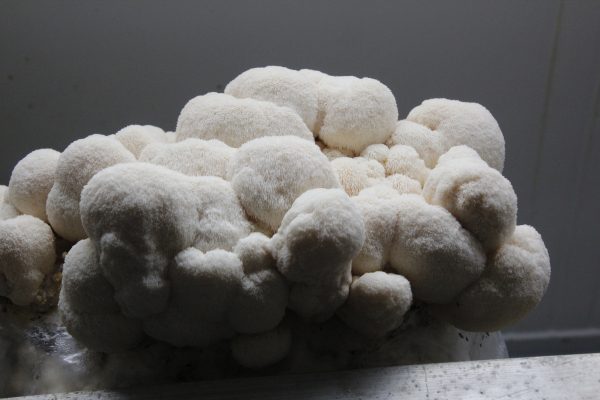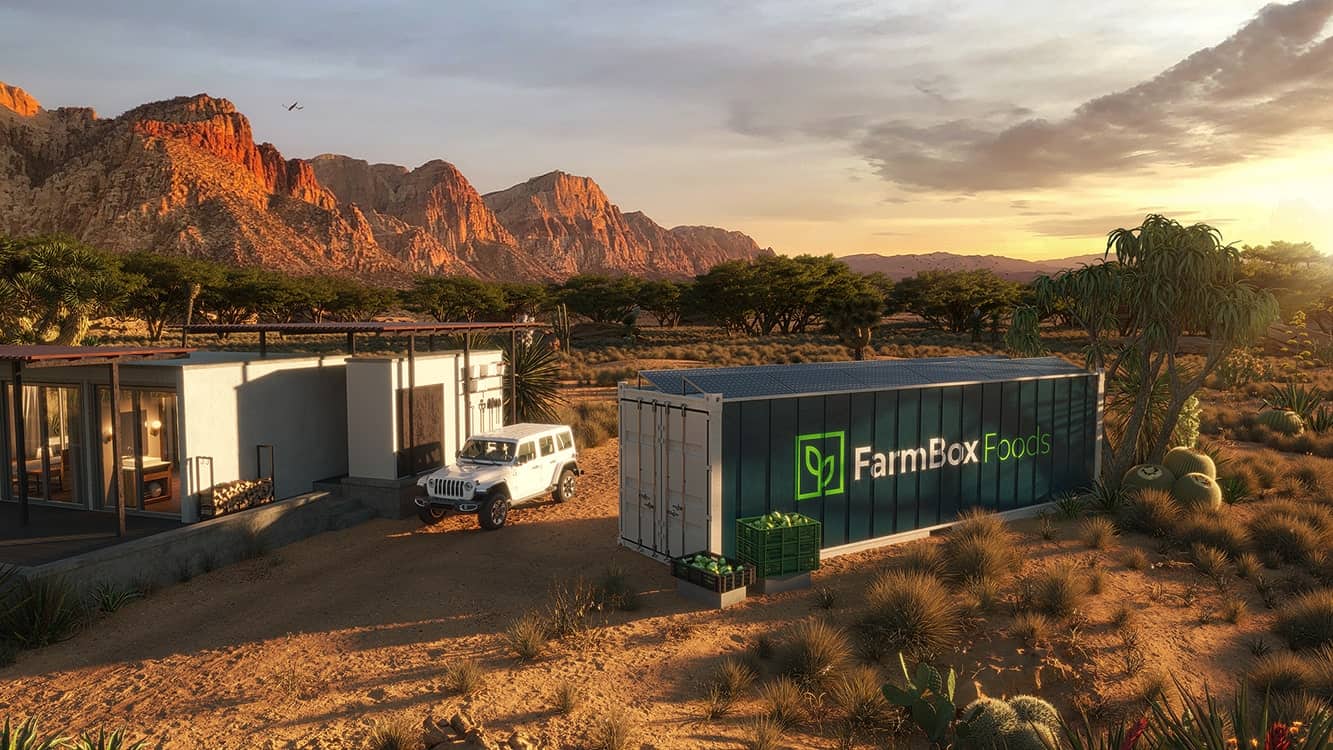FarmBox Foods LLC and New Alternative Green Energy, Inc. (New A.G.E.) announced the signing of a partnership that will provide food security to underserved communities and support initiatives related to clean energy and environmental stewardship.
FarmBox Foods is a Colorado-based manufacturer of tech-driven, controlled-climate farms housed in shipping containers, and New A.G.E. is a veteran-owned technology company with a portfolio of patented solutions aimed at improving global quality of life.
The containerized farms will be used to produce approximately 100 million servings of nutrient-dense food for people and animals over the duration of the partnership in 450 strategic locations throughout the world. Representatives from both FarmBox Foods and New A.G.E. are attending Climate Week NYC, the largest annual climate event of its kind, from Sept. 22-29, to discuss the companies’ missions and how they fit into larger sustainability goals.
FarmBox Foods brings its agricultural technology to food deserts throughout the world, empowering individual communities to grow their own nutritious food, eliminating supply chain issues and weather-related disruptions, and reducing emissions and other impacts associated with farming and food transport. FarmBox Foods will participate in extended collaborations with other sustainability-oriented companies in New A.G.E.’s portfolio.

“This is disruptive technology that has the ability to change the status quo for the better,” said Rusty Walker, CEO of FarmBox Foods. “We’re eager to work alongside New A.G.E. to collectively make a difference in the world.”
New A.G.E. is launching large-scale hydrogen infrastructure projects focused on making clean energy more accessible.
New A.G.E. leads the way in sustainable solutions with its diverse portfolio, encompassing
on-site hydrogen production, innovative fueling stations, advanced vehicle hydrolysis units to increase fuel efficiencies while reducing emissions, next generation solar technology integration, and water purification technologies. This comprehensive approach addresses environmental challenges across transportation, energy production, and agriculture, fostering a cleaner, greener, and more sustainable future.

“We are always working to change the way that things have always been done if there is a better way to do it”, said Michael C. Wilson, Jr., founder and Chairman of New Alternative Green Energy. “We are excited to work with FarmBox Foods to bring sustainable agriculture and energy together to work towards our mission, the Restoration of Creation, and to change the world.”
New A.G.E. also plans to create farm-to-table communities, also called agrihoods, in record numbers as part of broader economic development initiatives. The mixed-use villages offer residential living with a farm-to-table focus for families seeking a lifestyle centered around simplicity and sustainability.
About New A.G.E
New A.G.E. is a veteran-owned, mission-driven technology company with a portfolio of patented solutions aimed at improving global quality of life. The company’s core focus is on developing clean energy infrastructure, specifically that which makes hydrogen power more accessible, and to reduce the overall environmental impact of the existing infrastructure through its use of Vehicle Hydrolysis Units.
About FarmBox Foods
FarmBox Foods is a Colorado-based manufacturer of controlled-climate container farms that provide communities with the ability to sustainably grow healthy food year-round, anywhere in the world. The privately funded company brings food security and decentralized food production to areas in need through agricultural technology in the form of a Vertical Hydroponic Farm (VHF), Gourmet Mushroom Farm (GMF) and Hydroponic Fodder Farm (HFF). The high-yield, low-carbon-footprint container farms offer an alternative to traditional outdoor agriculture, which is subject to disruption from inclement weather, drought, conflict and more. The cutting-edge farm designs promote easy operation and maintenance while reducing the risk of food-borne illnesses.


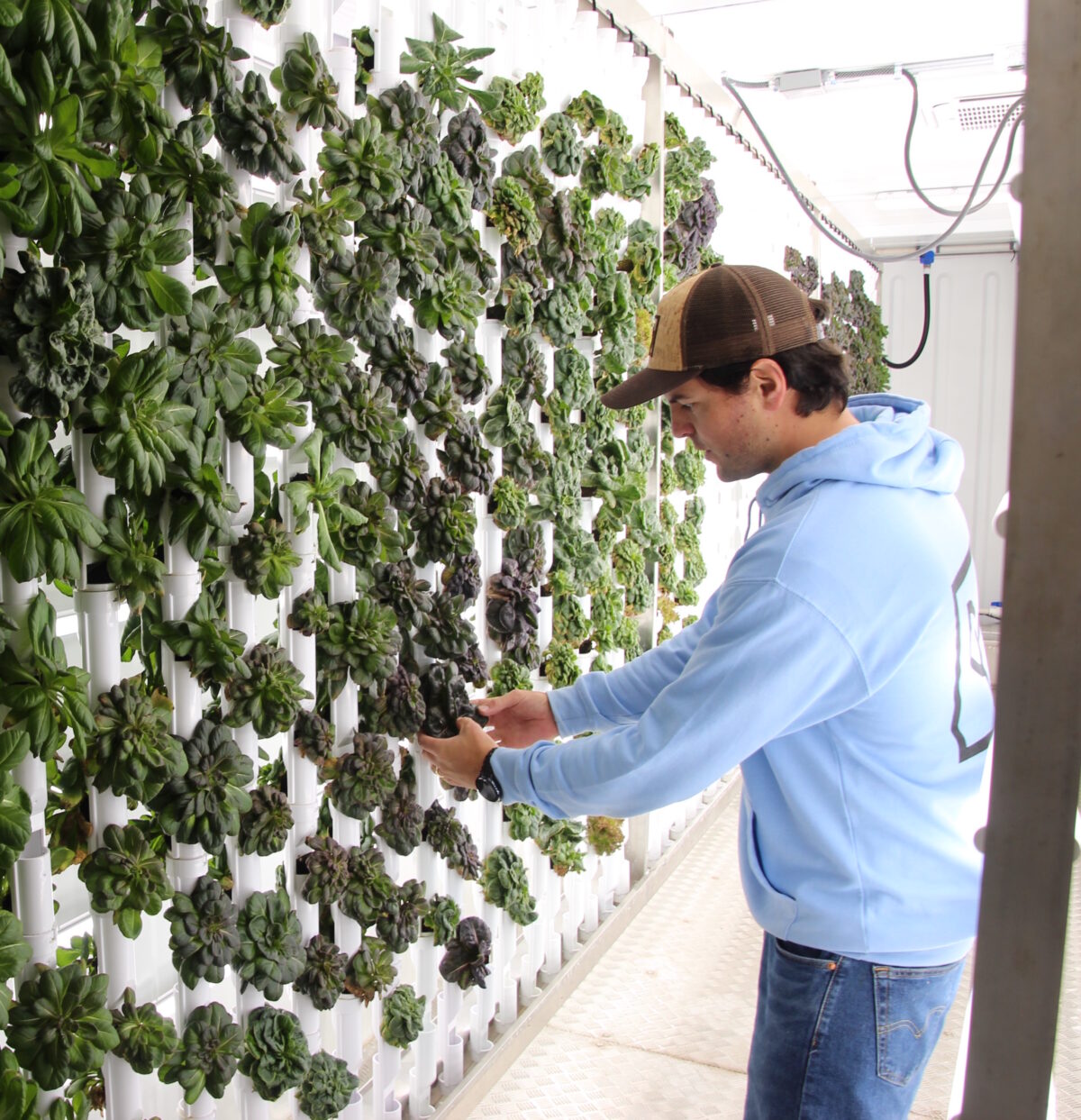
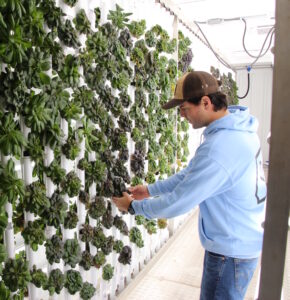
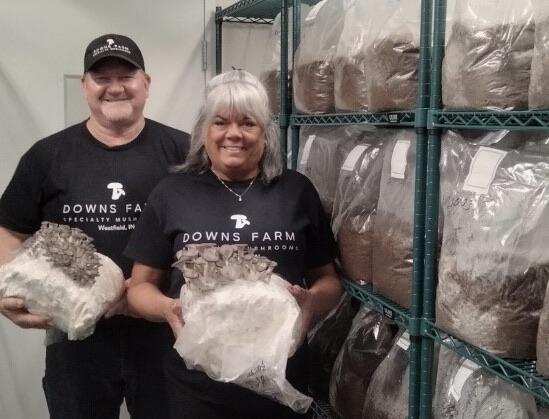
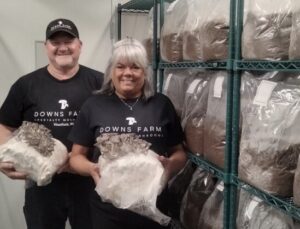 couple is celebrating the launch of a new business centered around specialty mushrooms that are sustainably grown in a controlled-climate farm.
couple is celebrating the launch of a new business centered around specialty mushrooms that are sustainably grown in a controlled-climate farm.


